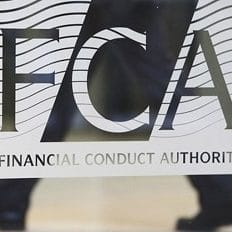
FCA: Court sent a clear message
A struck-off solicitor and money launderer has finally satisfied the £716,719 confiscation order made against him in 2017, after facing a return to jail.
Dale Robert Walker, 64, was last month sentenced by City of London Magistrates’ Court to 62 days in prison for his “wilful and neglectful failure” to pay the remaining £33,500. A relative paid it six days later.
Between 2008 to 2011, Mr Walker – who practised on his own account from Sevenoaks in Kent – helped to source land and undertook conveyancing, registration and consultancy services for plots of land being sold as part of an unauthorised collective investment scheme.
This scheme ultimately defrauded consumers of £4.3m, with some of the money from investors passing through his firm’s client account.
Mr Walker was convicted in 2015 of one count of possessing criminal property and one count of aiding and abetting the carrying on of a regulated activity, namely a collective investment scheme, without authorisation.
One of eight men convicted of the £4.3m land-banking fraud, he was sentenced to five and a half years’ imprisonment for the first count and 21 months for the second, the sentences to run concurrently.
He was struck off the following year after his third appearance before the Solicitors Disciplinary Tribunal.
In 2017, the court made a confiscation order of over £887,000 against him, which was later varied to £716,719. In all, £2.2m in confiscation orders were made against the defendants.
The judge at the Old Bailey, His Honour Judge Leonard, warned Mr Walker that he could serve up to three and a half years in prison if he failed to pay.
Last 2023, Mr Walker unsuccessfully tried to argue that he had no more assets or monies to pay the amount outstanding at that time of £38,750.
Although he did pay some further monies by instalment, he was sentenced to the 62 days in prison last month before the monies were finally paid.
Steve Smart, joint executive director of enforcement and market oversight at the Financial Conduct Authority, said: “Confiscation proceedings are a key tool in our work to ensure those who use their professional position to take advantage of others do not succeed in their criminal efforts at self-enrichment.
“We welcome the court’s decision to impose a further custodial sentence on Mr Walker, sending a clear message that non-payment is a serious matter and that the courts will use all appropriate tools to enforce these orders. It’s clear that this did finally persuade Mr Walker to find the means to pay.”













